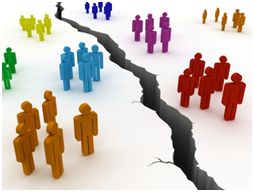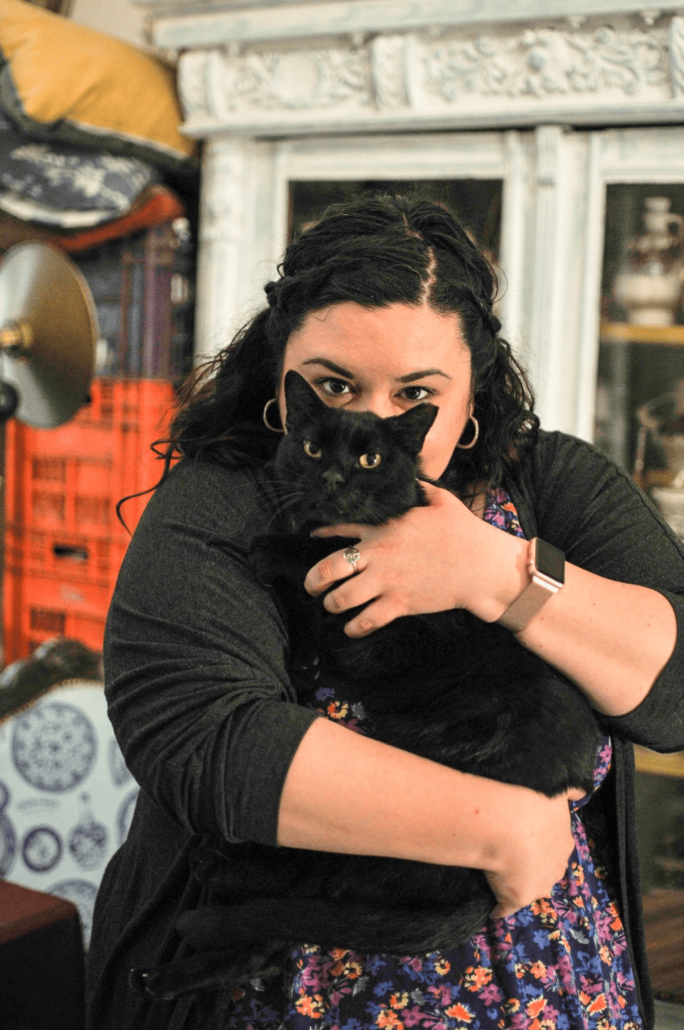Prof. Martin Stringer, now of Swansea University, once again lends his expertise in religious diversity to the Religious Studies Project. In this podcast, Prof. Stringer discusses the changes the discourse of religious diversity. After years of studying in different locations in the U.K. – Birmingham, London, Manchester – Stringer began noticing a pattern in the way people identify. Prof. Stringer states it is important to recognize the significant changes to the discourse on diversity. No longer are people identifying based on countries of origin or their ethnicities, but people often proclaim their religious identity as their marker. This is much different from the conversations of the 1960s and 70s, where the conversation is based on the ethnicities migrating throughout Europe.
Stringer mentioned the work of Steven Vertovec, and his concept of “super-diversity.” According to Vertovec, looking at diversity solely through the lens of ethnicity or country of origin is misleading and one-dimensional (2006, 1). Vertovec’s proposition of “super-diversity” acknowledges that there is a large array of variables that make up the diversity of an area. As researchers, we ought to look into the variables of age, immigration status, languages, gender, and as Stringer mentions, religion.
 To expand upon Vertovec’s theory of super-diversity, Stringer emphasizes the importance for religious studies professionals to develop a language to use when discussing this type of diversity, and be in conversation with our elected officials. According to Stringer, the language used to discuss religion has been secularized so much so that it almost as if we are no longer discussing religion. Cultivating a proper lexicon to discuss religion in public sphere is where religious studies professionals come in. This vocabulary comes in particularly useful when discussing the current atmosphere surrounding immigration and the tension brought on by the refugee crisis. As we start recognizing the differences that make up super-diversity, religion is a key component.
To expand upon Vertovec’s theory of super-diversity, Stringer emphasizes the importance for religious studies professionals to develop a language to use when discussing this type of diversity, and be in conversation with our elected officials. According to Stringer, the language used to discuss religion has been secularized so much so that it almost as if we are no longer discussing religion. Cultivating a proper lexicon to discuss religion in public sphere is where religious studies professionals come in. This vocabulary comes in particularly useful when discussing the current atmosphere surrounding immigration and the tension brought on by the refugee crisis. As we start recognizing the differences that make up super-diversity, religion is a key component.
As Stringer points out, discourse is divided along the lines of diversity and difference. When discourse focuses on difference, it divides the subjects along categorical boundaries. These categorical boundaries are socially constructed and further the narrative of “us vs. them”. However, when building discourse surrounding groups that are, yes, different, but focused on the commonalities, that is building a discourse on diversity. Those are the conversations we, as religious studies professionals, need to be having as outreach to the public and to our elected officials. Stringer points out that we must create this lexicon, promote, and make it accessible to the people that do not study religion as in-depth as us. In the case of immigrants and refugees, it is important that we recognize religious differences, and develop that language for the general public and elected officials to use. We can create a discourse of diversity, rather than allowing them to continue with the discourse of difference. If the conversation around migration changes, maybe the culture of suspicion and distrust towards migrants will change to one of welcome and empathy.
At first while listening to this podcast, I was having a difficult time figuring out what angle I wanted to write this response. All of the research Stringer mentions is centered on the U.K. As a student in the United States, I am not familiar with the neighborhoods he mentions nor the discourse he actually observes to draw his conclusions. However, I can relate what Stringer states to a very similar set of issues we are having in the U.S. We have the same issue of correct religious vocabulary to use while discussing religious diversity, the same lack of use of religious studies professionals in the political sphere, heated discussions of immigrants and refugees incited by the discourse of difference, and the division along categorical lines are exacerbated as these conversations persist.
As we have seen over the course of the last few years, the gap between the right and left has increased. Furthering the problematic discourse of difference that Stringer discusses. In agreement with Stringer, I fully believe that religious studies professionals must engage in civic matters more actively. It is not enough that we study the people that make our super-diverse communities. It is not enough that we understand the religious beliefs of the refugees fleeing Syria. In the United States, as in much of Europe, U.S. citizens are divided on whether we should accept more refugees from Syria or bar them and their religious beliefs. My own elected officials have introduced legislation to restrict the flow of refugees from areas with ISIS strongholds, in fear that Muslim radicals would be a part of the admitted refugees. What is my duty as somebody that studies human rights and religion? It is to bring these conversations to light, and lend my expertise to my elected officials. However, we cannot wait to have a seat at this table, but we must create it.
I don’t know if Prof. Stringer had this type of conversation in mind as he sat down with the Religious Studies Project, or throughout his research of super-diversity, but this is a conversation we must also have. We have seen violence increase after the Brexit vote, through a variety of news outlets and perspectives:
- Hate crimes soared by 41% after Brexit vote, official figures reveal
- Brexit: Racist abuse in UK reported since vote to leave EU
In the U.S. we see the vitriol and hate-filled rhetoric expounded by Donald Trump and the far right:
Many of the conversations centered in these situations are focused on the difference between us (citizens of our countries) or them (the migrants). I cannot speak to the discourse that is happening in the U.K., but I can speak to the discourse in the United States. It is one of division, fear, and hate, and one that religious studies professionals can lend their hand to, to calm the discussion and shift the conversation and culture from what makes us different to what our commonalities are to overcome those differences.



